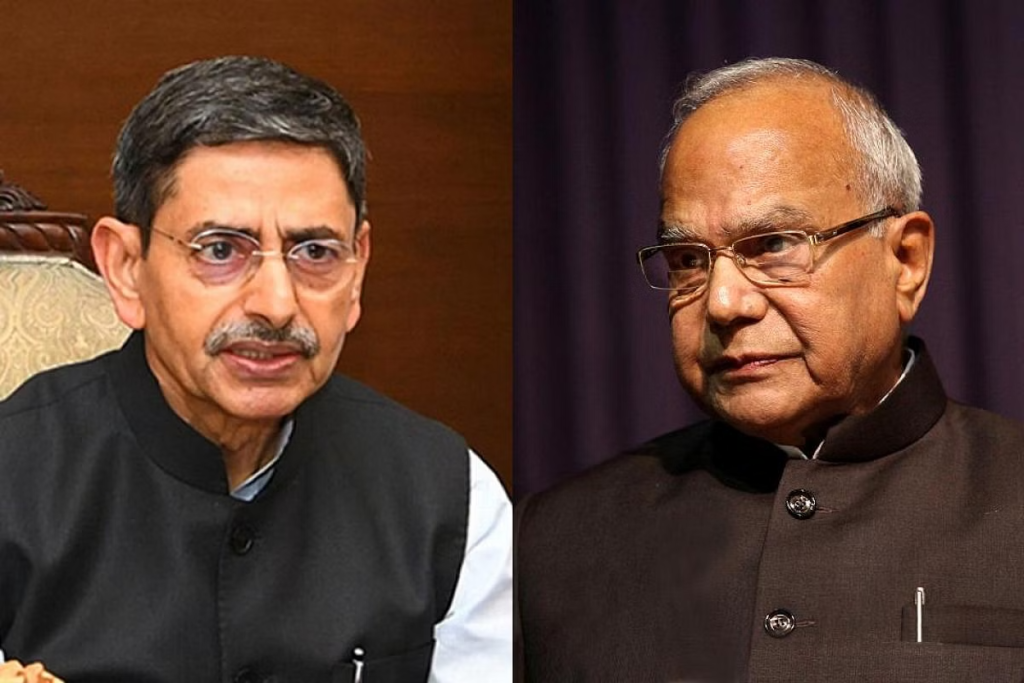Supreme Court Asserts the Power of Elected Representatives Over Governors in Bill Approval

Image Source: The New Indian Express
The Supreme Court decides Important bills cannot be constantly delayed by governors, highlighting the power of elected officials. Quick reaction is required to safeguard democratic values and avoid deadlock in governance. A pivotal legal stance for democracy.
The Supreme Court of India has clarified in a significant ruling that Governors cannot withhold consent to key Bills passed by State Legislatures indefinitely. The decision was made in response to a writ petition filed by the Punjab government, which expressed concern about Governor Banwarilal Purohit’s delay in approving important Bills concerning Sikh gurdwaras, police, and higher education.
The court emphasized that in a parliamentary democracy, the real power rests with the elected representatives of the people, stating that Governors act with the assistance and advice of the Council of Ministers, except in areas where the Constitution grants discretion. The court warned against creating a “constitutional deadlock” and directed the Governor to make a decision on the pending Bills as soon as possible.
In Tamil Nadu, the Supreme Court issued a formal notice to the Union of India in response to a petition filed by the Tamil Nadu government. The petition claimed that Governor R.N. Ravi’s failure to consider and assent to 12 crucial Assembly Bills was causing “serious concern” and jeopardizing day-to-day governance. The importance of Article 200 of the Constitution was emphasized by the court, which requires Governors to act “as soon as possible” when presented with Bills for the declaration of assent. Chief Justice D.Y. Chandrachud stated that the Governor could either give consent, suggest modifications, or refer the Bills to the President, but that sitting on them indefinitely was not an option.
The Tamil Nadu government, represented by senior lawyers A.M. Singhvi and P. Wilson, contended that the Governor’s inaction went beyond Bill approvals. Files requesting prosecution sanction in corruption cases, the early release of prisoners, and appointments to the Tamil Nadu Public Service Commission were reportedly held up, significantly impacting public health and higher education issues.
The court, which is scheduled to hear the case on November 20, emphasized the importance of the matter and emphasized the need for the Governor to fulfill constitutional obligations as soon as possible. The State petitioned the Supreme Court to declare the Governor’s inaction illegal and arbitrary and to set a deadline for considering pending Bills and orders. The state accused the governor of acting politically by denying sanctions for corruption investigations despite evidence against public servants.
Team Profile

- News Writer
- Patil Shweta Bharat is a final-year master's student in journalism with a passion for writing and research, particularly in the fields of politics and international affairs. She has interned with newspapers and corporate companies to explore the media industry. Shweta believes that continuous learning is essential for a fulfilling and successful life and is here to learn from everyone and share her knowledge. Traveling and exploring new and uncharted territories are things she is passionate about.
Latest entries
 English29 November 2023Oldest Militant Group in Manipur, UNLF, Accepts Peace
English29 November 2023Oldest Militant Group in Manipur, UNLF, Accepts Peace English27 November 2023In response to Kapil Dev’s World Cup rejection, Shiv Sena attacked the BCCI, BJP, and ICC
English27 November 2023In response to Kapil Dev’s World Cup rejection, Shiv Sena attacked the BCCI, BJP, and ICC English26 November 2023Polls in Rajasthan Show a High Turnout; Differential Voter Attitudes, Parties’ Feelings
English26 November 2023Polls in Rajasthan Show a High Turnout; Differential Voter Attitudes, Parties’ Feelings English26 November 2023Israel-Hamas truce offers a fleeting respite amidst the ongoing conflict.
English26 November 2023Israel-Hamas truce offers a fleeting respite amidst the ongoing conflict.









